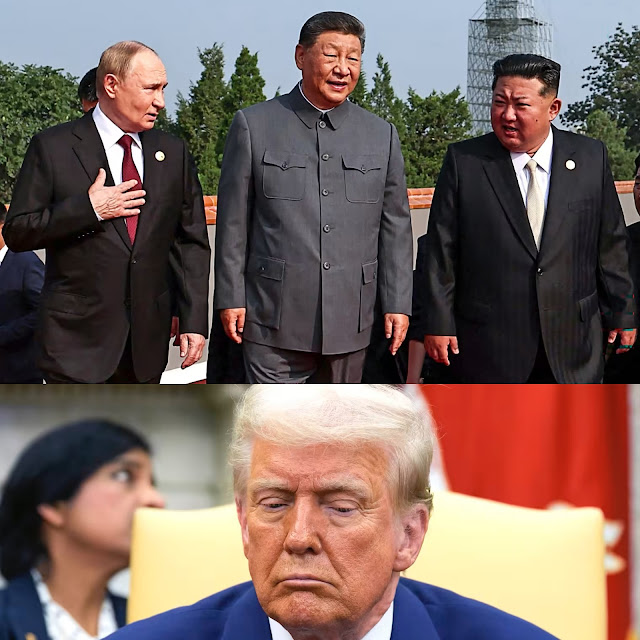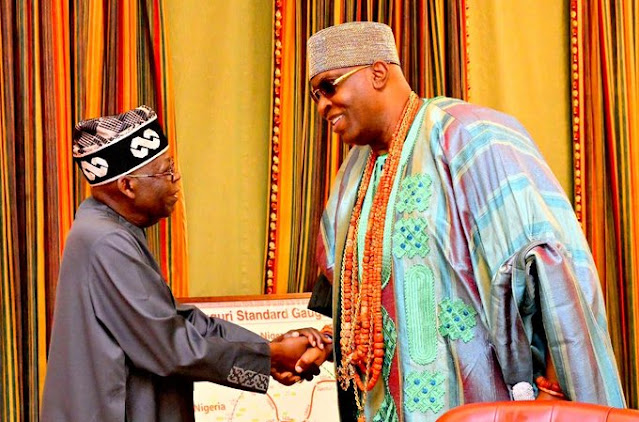In a pivotal moment for Nigeria’s political landscape, President Bola Ahmed Tinubu held a high-stakes meeting with the Administrator of Rivers State, General Samuel Ibas (rtd), at the Aso Rock Presidential Villa in Abuja. This closed-door discussion, which took place on September 3, 2025, comes at a crucial juncture as the six-month state of emergency imposed on Rivers State is set to expire in less than two weeks. The meeting has sparked widespread speculation about the future governance of the oil-rich state, which has been grappling with intense political turmoil and violence in recent months. The outcome of this engagement could shape the trajectory of Rivers State’s administration and influence the broader political dynamics in Nigeria’s South-South region.
Background: The Roots of the Crisis in Rivers State
To fully appreciate the significance of this meeting, it is essential to understand the context that led to the imposition of a state of emergency in Rivers State. The state, a key player in Nigeria’s oil and gas industry, has been embroiled in a protracted political crisis that has destabilized its governance structures and threatened public safety. The conflict primarily revolves around a bitter feud between two political heavyweights: Nyesom Wike, the former governor of Rivers State and current Minister of the Federal Capital Territory (FCT), and his estranged political godson, Governor Siminalayi Fubara.
The rift between Wike and Fubara, which began shortly after Fubara assumed office in May 2023, has escalated into a full-blown political war, characterized by factionalism, defections, and violent clashes. The crisis reached a boiling point in late 2024 when the Rivers State House of Assembly became a battleground for competing loyalties. Lawmakers loyal to Wike attempted to impeach Fubara, accusing him of maladministration and disloyalty, while Fubara’s supporters resisted these moves, leading to physical altercations and the destruction of state property, including parts of the State Assembly complex.
The situation deteriorated further with reports of armed militias, cult groups, and political thugs engaging in violent confrontations across Port Harcourt and other parts of the state. The breakdown of law and order prompted widespread calls for federal intervention to restore stability. In March 2025, President Tinubu, exercising his constitutional powers under Section 305 of the 1999 Constitution of Nigeria, declared a state of emergency in Rivers State, citing the collapse of governance and the inability of the state government to maintain public safety.
As part of the emergency measures, President Tinubu suspended the state’s executive and legislative arms and appointed General Samuel Ibas, a retired military officer with a reputation for discipline and neutrality, as the Administrator of Rivers State. Ibas was tasked with restoring order, overseeing the state’s administration, and laying the groundwork for a return to democratic governance. The state of emergency, initially set for six months, is due to expire in mid-September 2025, making the recent meeting between Tinubu and Ibas a critical moment for determining the next steps.
The Meeting: A Strategic Discussion on Rivers State’s Future
The meeting between President Tinubu and General Ibas was shrouded in secrecy, with no official statement released immediately after the closed-door session. However, sources close to the presidency indicate that the discussions centered on three key issues: the performance of the emergency administration, the feasibility of lifting the state of emergency, and the roadmap for restoring democratic governance in Rivers State. The timing of the meeting, just days before the expiration of the emergency rule, underscores its urgency and significance.
General Ibas, who has been at the helm of Rivers State’s administration since March, reportedly briefed the President on the progress made under his leadership. According to insiders, Ibas highlighted efforts to stabilize the security situation, rebuild public confidence in governance, and address the underlying causes of the political crisis. Under his administration, security forces have cracked down on cult-related violence and political thuggery, leading to a significant reduction in reported incidents of unrest in Port Harcourt and other volatile areas. Ibas also initiated reconciliation efforts among political stakeholders, although the deep-seated animosity between the Wike and Fubara camps remains a significant challenge.
The Administrator is believed to have presented a detailed report on the state of infrastructure, public services, and economic activities in Rivers State. The oil-rich state, which accounts for a substantial portion of Nigeria’s crude oil production, has faced disruptions in its economy due to the political crisis. Ibas’s administration has prioritized the protection of critical oil and gas infrastructure, working closely with security agencies and multinational oil companies to ensure uninterrupted operations. Additionally, efforts have been made to restore public services, including healthcare and education, which were adversely affected by the unrest.
The Question of Extending or Lifting the Emergency Rule
One of the most pressing issues discussed during the meeting was whether to lift the state of emergency or extend it for another period. The expiration of the current emergency declaration is fast approaching, and a decision must be made to either return Rivers State to democratic governance or maintain the current administrative arrangement under Ibas. This decision is fraught with political and legal complexities, as it will have far-reaching implications for the state and the nation as a whole.
Proponents of lifting the emergency rule argue that significant progress has been made in stabilizing Rivers State. They point to the reduction in violence, the restoration of public order, and the resumption of economic activities as evidence that the state is ready to return to civilian governance. However, critics caution that the underlying political tensions remain unresolved, and a premature end to the emergency rule could lead to a resurgence of violence and instability. The rivalry between Wike and Fubara, which has not been fully addressed, continues to polarize the state’s political elite and could undermine efforts to restore democratic institutions.
There is also the question of what form of governance would replace the emergency administration if the state of emergency is lifted. One option is to reinstate Governor Fubara and the suspended State Assembly, allowing them to complete their terms. However, this approach is complicated by the fact that Fubara’s relationship with a significant portion of the legislature remains strained, and the risk of renewed impeachment attempts looms large. Another option is to organize fresh elections for the governorship and the State Assembly, a move that could provide a fresh mandate but risks exacerbating existing tensions.
Alternatively, President Tinubu could seek approval from the National Assembly to extend the state of emergency for another six months. Such a decision would require a two-thirds majority vote in both chambers of the legislature, as stipulated by the Constitution. An extension would allow Ibas to continue his efforts to stabilize the state and create conditions for a smoother transition to democratic governance. However, this option could face opposition from political actors who view the emergency rule as an overreach of federal power and an infringement on the state’s autonomy.
Political Implications and Stakeholder Reactions
The meeting between Tinubu and Ibas has generated intense speculation among political analysts and stakeholders in Rivers State. For many, the outcome of the discussions will serve as a litmus test for President Tinubu’s approach to managing Nigeria’s complex federal structure and addressing regional crises. Rivers State, as a major economic hub, holds significant strategic importance, and any misstep in handling its political crisis could have ripple effects across the Niger Delta and beyond.
The Wike-Fubara feud remains a central factor in the state’s political equation. Wike, who wields considerable influence within the All Progressives Congress (APC) and enjoys a close relationship with President Tinubu, is seen as a key player in determining the future of Rivers State. His supporters argue that Fubara’s administration was ineffective and divisive, justifying the need for federal intervention. On the other hand, Fubara’s camp accuses Wike of orchestrating the crisis to maintain control over the state’s political machinery, even after leaving office.
Civil society organizations and residents of Rivers State have expressed mixed reactions to the ongoing situation. Some commend General Ibas for his efforts to restore peace and order, citing improvements in security and public services. Others, however, argue that the state of emergency has sidelined democratic institutions and silenced the voices of the people. There have been calls for greater transparency in the decision-making process and for the inclusion of local stakeholders in shaping the state’s future.
Broader National Context
The crisis in Rivers State is not an isolated event but part of a broader pattern of political instability in Nigeria. Across the country, tensions between state and federal authorities, as well as intra-party rivalries, have tested the resilience of Nigeria’s democratic institutions. President Tinubu, who assumed office in 2023, has faced numerous challenges, including economic hardships, insecurity, and political fragmentation. His handling of the Rivers State crisis will likely be seen as a reflection of his ability to navigate these complex issues and maintain national cohesion.
The situation in Rivers State also has implications for Nigeria’s oil-dependent economy. The state is home to critical oil and gas infrastructure, including refineries, pipelines, and export terminals. Any disruption in the state’s stability could affect Nigeria’s oil production and revenue, which remain critical to the country’s fiscal health. The federal government’s interest in maintaining control over Rivers State is therefore not only political but also economic.
The Road Ahead: Challenges and Opportunities
As the expiration of the state of emergency looms, President Tinubu faces a delicate balancing act. He must weigh the need for stability against the imperative to restore democratic governance. The decision will require careful consultation with key stakeholders, including political leaders, traditional rulers, civil society groups, and security agencies. The involvement of the National Assembly will also be critical, particularly if an extension of the emergency rule is deemed necessary.
For General Ibas, the meeting with President Tinubu represents an opportunity to showcase the achievements of his administration while acknowledging the challenges that remain. His ability to maintain neutrality and foster reconciliation among warring factions will be crucial in the coming weeks. The Administrator must also address concerns about the marginalization of local voices and ensure that the people of Rivers State are actively involved in shaping their state’s future.
Looking ahead, the resolution of the Rivers State crisis could serve as a model for addressing similar conflicts in other parts of Nigeria. A successful transition to stable, democratic governance in Rivers State would demonstrate the federal government’s capacity to manage regional crises effectively. Conversely, a failure to address the root causes of the crisis could embolden political actors in other states to pursue similar tactics, further undermining Nigeria’s democratic institutions.
Conclusion
The meeting between President Bola Tinubu and General Samuel Ibas marks a critical moment in the ongoing effort to restore stability and governance in Rivers State. As the state of emergency nears its end, the decisions made in the coming days will have profound implications for the state’s political future and Nigeria’s broader stability. Whether through the restoration of democratic institutions or an extension of the emergency rule, the path forward requires careful navigation of complex political, economic, and social dynamics.
The people of Rivers State, who have endured months of uncertainty and unrest, are watching closely. Their hope lies in a resolution that prioritizes peace, inclusivity, and the restoration of their right to self-governance. For President Tinubu, the challenge is to balance these aspirations with the need to maintain national unity and security. As the clock ticks down to the expiration of the emergency declaration, all eyes are on Abuja, where the future of Rivers State hangs in the balance.






